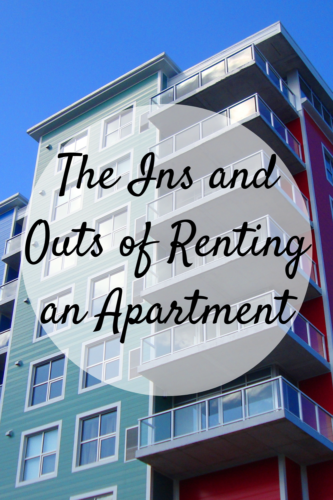
Moving out of your parent’s house and into your first apartment is an exciting time, but it can also be a bit daunting. After spending months finding the perfect apartments for rent in Boston (or wherever you are moving to), you now find yourself filled with questions like: How do I protect my belongings? And what does it really mean to “sign a lease”? This article will help you understand the ins and outs of renting an apartment so you can make the best decision for your next phase of life. Keep reading to learn more.
Renters Insurance
Renters insurance is an often overlooked but important part of renting an apartment. It protects your belongings in the event of a fire, burglary, or other disasters. The average cost of renters insurance is about $165 per year, which is a small price to pay for peace of mind.
Most renter policies cover your belongings up to a certain amount, typically $20,000. This includes furniture, electronics, clothing, and other personal items. Some policies also provide liability coverage in case someone is injured in your home. It’s important to read through your policy carefully to make sure you are fully covered. In addition, be sure to keep receipts for big-ticket items like televisions and computers so that you can submit them for reimbursement if something happens to them.
Lease Agreements
When you are looking for apartments for rent in Raleigh, you need to consider the lease agreement. This document lays out all of the terms and conditions of your tenancy, so it’s important to understand what you’re signing up for. First, you’ll need to pay attention to the term of the lease. This is the length of time you will be renting the apartment. Most leases are for one year, but they can also be for six months or longer. The lease will also specify how much rent you will be paying each month, as well as when it is due. Be sure to budget appropriately, as late payments can result in penalties. Many leases charge a late fee if rent is not paid by the due date. The amount varies, but it’s typically around $50 to $100.
Your lease will also spell out all of the rules and expectations for your tenancy. For example, if you have pets, you’ll need to check whether or not they are allowed in the building or complex where you’re looking to live. If they aren’t, your options may be limited. Some complexes also charge an extra pet deposit or monthly fee. Your lease agreement will outline everything you need to know, so you’ll want to read over it carefully before signing, especially if your landlord plans to sell the building or refinance the property. An estoppel certificate is served just to confirm that the tenants will keep their lease agreement terms under the new ownership and is part of the due diligence process in residential and commercial real estate transactions.
The Security Deposit
The security deposit is a sum of money that a tenant pays to a landlord at the beginning of a lease agreement. This deposit is intended as security against any damages that the tenant may cause to the property during their tenancy. Typically, the amount of the security deposit is one month’s rent, but it can be more or less depending on the landlord’s requirements.
The landlord has three options with respect to how they use the security deposit: They can return it to the tenant at the end of their lease, keep it for damages, or deduct money from it for damages. If the landlord elects to keep some or all of the security deposit for damages, they must provide written notice to the tenant specifying what damage was done and how much money was taken from the deposit.
Landlords are required by law in most states to put any deposits into a trust account until such time as they are either returned to tenants or used for damages. This protects tenants from landlords who might unfairly withhold their deposits.
Utilities and Other Bills
Utilities and other bills are an important part of renting an apartment. Most landlords require tenants to pay their utilities, which usually include water, heat, and electricity. In addition to the standard utilities, some apartments also include cable TV and internet as part of the rent. Other bills that may be included in the rent are trash collection and parking fees. It is important for tenants to know what is included in their rent so they can budget accordingly.
Overall, renting an apartment can be an advantageous experience, but be aware of the ins and outs of the process in order to make the most of it. By understanding the rental process and what is expected of you as a tenant and investing in quality rental insurance, you can minimize potential problems and ensure a smooth transition into your new home.





Leave a Reply